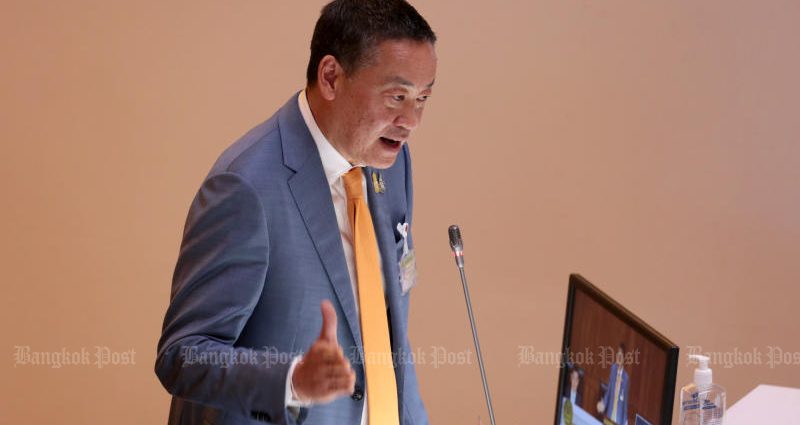Wallet scheme faces delay amid scrutiny

The National Anti-Corruption Commission (NACC) has set up a committee to study the government’s 10,000-baht digital currency handout scheme as the agency steps up its scrutiny of the ruling Pheu Thai Party’s key policy.
A source at the NACC said the move followed a recommendation by the anti-graft agency’s corruption monitoring and appraisal panel.
The committee is chaired by Supa Piyajitti, an NACC member, and comprises representatives of various government agencies. It is tasked with gathering, studying and analysing information regarding the 10,000-baht digital handout scheme and coming up with measures to prevent any potential policy-oriented corruption stemming from the scheme.
The committee will also work with other relevant agencies and persons to support its study and gather opinions and suggestions on how to prevent potential policy corruption involving the scheme from other sectors.
However, Deputy Finance Minister Julapun Amornvivat said on Thursday that the digital money handout may face a delay and a reduction in scope as it will only cover the poor.
Following a meeting of a sub-committee overseeing the project implementation on Wednesday, Mr Julapun said that the sub-committee recommended limiting the handout to 15–16 million people who have state welfare cards or individuals meeting specific wealth criteria based on income or savings.
If limited to the 15–16 million welfare cardholders, the scheme will cost the state 150–160 billion baht. The sub-committee also suggested extending eligibility to those meeting specific salary or savings criteria.
Mr Julapun said if the handout excludes people earning more than 25,000 baht monthly or having at least 100,000 baht in deposits, the scheme will cover about 43 million people, costing about 430 billion baht.
Another optional proposal by the sub-committee excluded individuals earning over 50,000 baht monthly or having savings exceeding 500,000 baht. In this scenario, the handout would cover 49 million recipients, costing the state 490 billion baht.
The government initially planned to distribute 10,000 baht worth of digital money to each Thai aged 16 years and over. But with 54.8 million people meeting the original condition, concerns arose about the significant burden of over 500 billion baht affecting the country’s financial stability.
The sub-committee concluded that the handout scheme should be funded mainly by the national budget, about 100 billion baht annually, starting from the 2024 fiscal year.
Under this condition, the scheme would be delayed until April or May next year, pending approval of the 2024 national budget, Mr Julapun said. Previously, the government intended to hand out the digital money on Feb 1 next year.
Prime Minister and Finance Minister Srettha Thavisin said on Thursday he had received the proposals from the sub-committee. He said he will discuss these proposals with relevant authorities, including the secretary-general of the National Economic and Social Development Council.
“At this stage, I have not yet concluded whether or how the handout scheme would be downsized,” said Mr Srettha. “To avoid confusion, I would like all the details of the project to be finalised before making an official announcement.”

